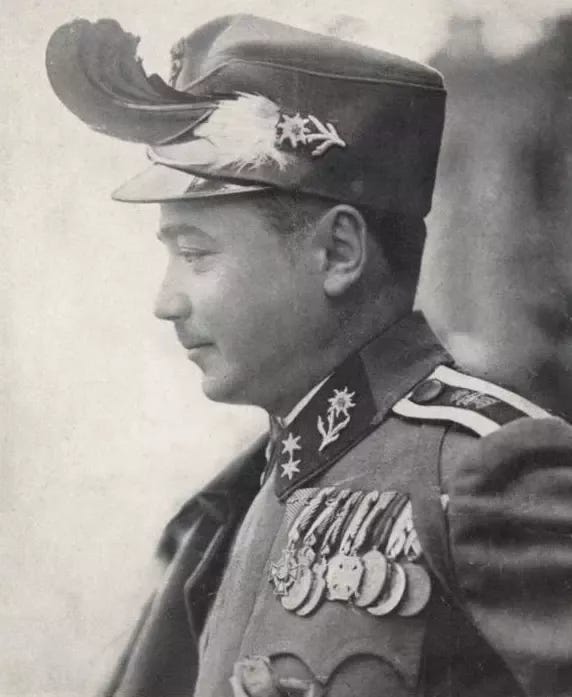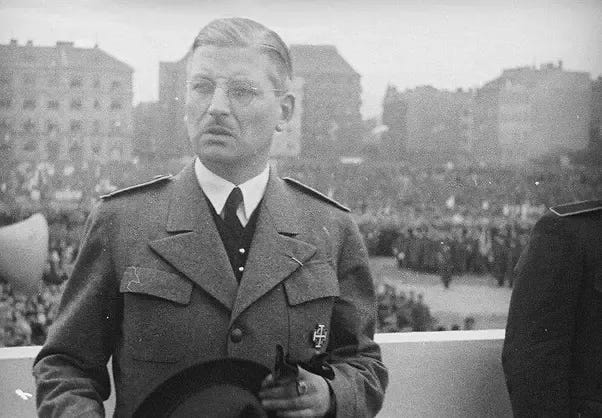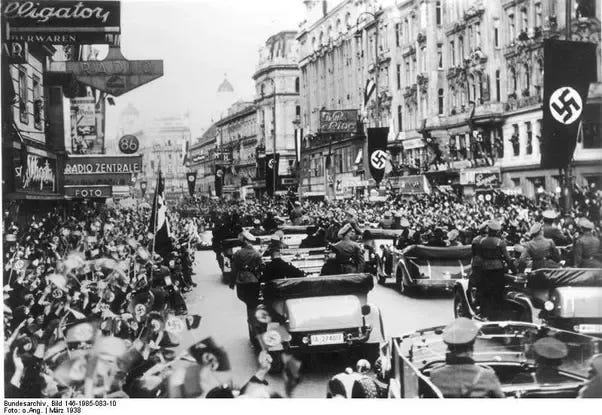To understand Anschluss you actually have to go as far back as 1871, when there was an idea to form a kleindeutsch German empire that would exclude Austria and make Prussia the focus. In opposition, the Austrian empire had a German minority ruling over a majority which consisted of Slavs and Hungarians, and they sought a Greater Germany of sorts that would be led by the Hapsburgs in which Prussia would play a secondary role. This conflict, between Austria and Prussia, was to play a major part in the issue.
The 7-week Austro-Prussian War, in 1866, fought between the Austrian Empire on one side and Prussia and Italy on the other, ended in a decisive win for the Prussians. The Peace of Prague treaty allowed the Austrian Empire to retain its territories, on condition that the ruling Hapsburgs should not interfere with the internal affairs of Prussia. Fifty years later we see a turning point, with the onset of World War I.
With the Austrian empire suffering a defeat in WWI, both elite and common folk felt the need to have some degree of unification with Germany. Only, the Peace Treaty explicitly forbade it. In 1918, the Austrian Empire broke up and the predominantly German speaking part became the Republic of German–Austria.
Plebiscites in the border regions of Tyrol and Salzburg favoured a union with the German republic. However, the Treaty of Versailles, and later the Treaty of St.Germain, explicitly prohibited Austria from being a part of the German state. This was reinforced by France and Britain, who feared the rise of a larger German state, and who wanted to disempower the current one. The religious factor also came into picture here; Austria was overwhelmingly Roman Catholic, while Germany was mostly Lutheran Protestants, especially in Prussia. The support for a possible unification with Germany never the less began to grow in Austria, especially during the 30s.
Hitler, incidentally, was Austro–German. He believed that all Germans, wherever they lived must unite to form a German Reich of sorts. He explicitly mentions in Mein Kampf his aim was the unification of his native Austria with Germany.
During the Great Depression, Austria was hit hard, with large rates of unemployment and its industry in a free fall. With its vast mineral riches and a ready availability of manual labour, Austria was a prime target and Germany sought to annex it by whatever way possible.
Though the Austrian Nazi Party did not win any seats in the 1930 General Elections it continued to become more popular, especially after Hitler came to power. Almost 80 percent of the Austrian population now supported the idea of Anschluss, seeing it more as unification than annexation, and they would eagerly have let Germany take over. The rather oafish antics of the Nazis howver, provoked a backlash. Englebert Dolfuss, the existing Chancellor, was assasinated in a failed Nazi coup. And his successor Kurt Schuschnigg began a crackdown on the Nazis—rounding them up and placing them in interment camps. This only made the Nazis more determined. Germany called for an economic boycott, which severely hurt Austria so eventually Schuschnigg agreed to release the arrested Nazis.
Hitler, however, was not satisfied, and this only made the pro-Germany Nazis in Austria stronger.
Schuschnigg met Hitler at Berchtesgaden and tried negotiating with him to avoid an annexation of Austria. He agreed to Hitler's demands, which included appointing Nazi sympathizers to key roles in the Government, but Hitler was in no mood to relent and made his famous speech where he stated:
The German Reich is no longer willing to tolerate the suppression of ten million Germans across its borders
referring to Czechoslovakia and Austria.
On 8 March 1938, Schuschnigg in a last ditch effort decided to go in for a plebiscite on the question of unification with Germany. He dismantled the one party state, agreed to legalize Social Democrats and trade unions, hoping for their support. He also set the minimum voting age at 24, as he felt the younger voters were more likely to be swayed by the Nazis. Hitler called the referendum a fraud. In Austria propaganda spread. Riots broke out and many Austrian people called for German troops to suppress them.
On 11 March, Hitler sent an ultimatum demanding that Schuschnigg relinquish power to Austrian Nazis or face invasion. With Britian and France not offering any assistance, Schuschnigg resigned, handing over power to Arthur Seyss-Inquart, a long time Nazi and Minister for Public Security. On 12 March, the 8th Army of the Wehrmacht marched into Austria to a huge welcome, and no sooner became part of the Third Reich.




